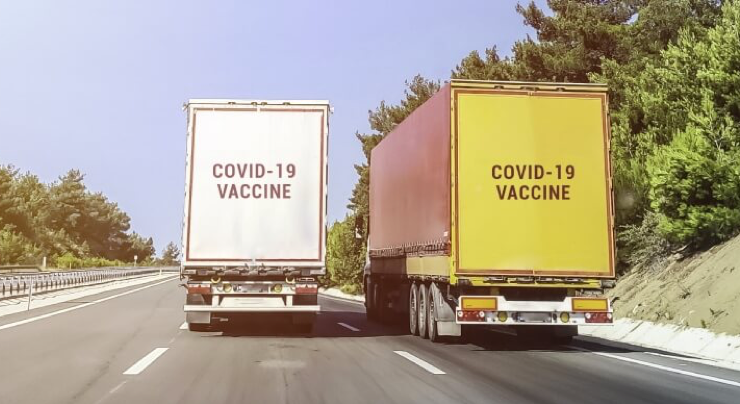Asia Thinkers review the steps Governments are taking to vaccinate their citizens and the challenges they face in rolling out the vaccine.
It’s been over a year since an outbreak of a new strain of coronavirus was first reported in Wuhan, China. Declared a pandemic by the World Health Organisation in March 2020, it has now infected more than 92 million people worldwide. As the manufacture of a viable COVID-19 vaccine speeds up, it’s apparent that while wealthy countries in Asia have placed orders and are now receiving the first doses, other countries are missing out. Asian countries including Indonesia, Singapore, Thailand, Vietnam and Malaysia have already set in motion the necessary steps to obtain the vaccine.
Singapore
Singapore leads the vaccine race in Asia, having approved the Pfizer-BioNTech vaccine in December 2020. The vaccination programme has already begun, with healthcare workers receiving the shot first and those over the age of 70 vaccinated in February. All Singaporeans are expected to be vaccinated by the end of 2021, free of charge, according to the Ministry of Health.
Indonesia
Indonesia has already received at least 3 million doses of the Chinese Sinovac vaccine. Authorities announced a mass vaccination program which began in January, and the vaccines will be free for the public. The government plans to prioritize working-age adults over the elderly, hoping to reach herd immunity and boost the economy.
The country also secured deals with AstraZeneca and Novavax to obtain 50 million doses from each company, initial shipments have already arrived but no details are available on when the orders will be completed.
Thailand
Thailand has signed a deal with AstraZeneca to import 26 million doses of the vaccine and to set up a local manufacturing facility to produce the vaccine in Thailand. The locally produced shots will be provided to people in Thailand, as well as across Southeast Asia, with distribution expected to begin in May. The country will also receive 2 million doses of the Sinovac vaccine in three batches, delivered in February, March and April.
Malaysia
The country is spending $504 million to buy enough shots to cover 26.5 million people or about 80% of its population. Malaysia conducted its first COVID-19 vaccine trial in December 2020 as part of a government-to-government agreement with China but is still waiting for the outcome of Phase 3 trials. Malaysia is also set to secure 6.4 million doses of the AstraZeneca vaccine through the Covax facility, enough to inoculate 20% of the country’s population. The first batch arrived at the end of February and 80% of the population is expected to be inoculated by end of 2021.
Governments are taking different approaches to managing the rollout of the COVID-19 vaccine according to their priorities. Singapore has taken a view similar to that of western countries wanting all front line workers, citizens over 70 years old, cross-border workers, and those at high risk vaccinated first, while Indonesia wants to quickly kickstart its economy and will initially focus on vaccinating all those of working age.
Many Asian countries are also facing challenges in obtaining enough vaccines to roll out inoculations across all citizens due to competition especially from western countries that made early purchases. Within South-East Asia, Singapore is likely to deliver widespread vaccinations first, followed by Thailand, Malaysia, Brunei, Vietnam, Indonesia and the Philippines by 2023. In countries like Laos, Cambodia and Myanmar, experts believe it may take up to five years to vaccinate the population. Governments need to recognise that this is a disease without borders and how the rollout is managed in one country may impact neighbouring countries. A good example is Singapore’s relationship with Malaysia. Both countries rely heavily on each other, a lockdown in one country can affect jobs education and the economy in both countries.
Malaysia is currently in its second lockdown having previously reported more than 3000 cases per day, so while Singapore may rollout the vaccine program before Malaysia, there is still the risk of cross border infection. When Malaysia went into lockdown, workers and students in both countries were left stranded hurting the economy and resulting in a shortage of labour in Singapore. A senior economist at DBS Group is reported as saying that “as long as Malaysia continues to struggle with the pandemic it will have an economic impact on Singapore.”
In a similar situation, Thailand will receive and produce adequate supplies of the vaccine to cover its population in 2021 but with the neighbouring counties of Laos and Cambodia not expecting vaccine coverage until 2025, there is no guarantee that outbreaks won’t continue through cross border transmission. Even though countries have differing fiscal, demographic and distribution challenges in their vaccine strategies, it will be in the best interest of all countries to co-operate and support each other.

Photo Getty Images
Who should be inoculated?
There are a large number of people worldwide who don’t want the vaccine, some of these fall into the category identified by the World Health Organisation(WHO) such as people with allergies, pregnant and breastfeeding women, and children under sixteen years who are recommended not take the vaccine. Studies have revealed, however, that there are many who do not want the vaccine, even with countries that have a supply of the vaccine. “vaccine hesitancy” may be a problem.
Recently, a YouGov survey in December found a wide variance across the region when it came to the willingness to receive a COVID-19 vaccine. Some 83% of Thais, 60% of Malaysians and 56% of Indonesians said they were willing to get a COVID-19 jab, while the figures in Singapore, the Philippines, Taiwan and Hong Kong was less than 50%. Lack of awareness regarding vaccines and concerns of adverse events have been identified by WHO as key reasons why there is a hesitancy to vaccinate in Asia.
Experts believe that herd immunity, which requires 70% or more of the population immune to the virus, is necessary to end this epidemic. Crossing the chasm to get to these numbers will require addressing concerns of the public in getting vaccinated. The key will be reassuring people about the safety of the vaccine through government programmes, and providing people with a positive experience before, during, and after vaccination. Studies in Asia have identified that pseudoscience beliefs and anti-vaccine conspiracy theories were reasons given for refusing to vaccinate. Social, cultural and religious perspectives have also contributed to vaccine refusal. Despite this, Facebook surveys have shown generally positive support towards COVID-19 vaccines. Online chatter might not be representative of overall public attitudes but does provide a glimpse into what people are thinking.
Asia Thinkers interviews Netizens from Malaysia and Singapore in order to get their views on the vaccine, discuss the reasons for taking the vaccine, and ask — would getting a vaccination change their lives?
Singapore
Vaccination is free to all Singaporeans and long-term residents in Singapore. Asia Thinkers asked Tony, a retired teacher if he willing to get the vaccine:
“I am scared of getting infected with COVID-19. Sure I will get the vaccine. For one thing, I’d rather have the vaccine than betting on surviving yet another deadly infection unvaccinated. The most important reason that I want to be vaccinated is that I am in the high-risk group. Indeed, I have a heart condition, and I am 69”. These factors put me at risk, but even worse would be the danger I pose to my older brother, family members and friends If I don’t take the vaccine.”
Asia Thinkers asked Sharon, a small business owner, her thoughts on getting the vaccine:
“I still haven’t made up my mind as I am just afraid of getting the inoculation and the possible side effects. As it is not compulsory I have decided to adopt an ‘await and see approach.’ Although the majority of my friends intend to get the vaccine, I am still young and don’t see any immediate benefit of rushing into it.”
Malaysia
Asia Thinkers spoke with Ravi, a businessman from Kuala Lumpur, to ask his thoughts on getting the vaccine:
“I am still considering if I should take the vaccine. The PM has taken it but has said it’s not compulsory for Malaysians to be inoculated. It is early days and COVID-19 lockdowns have had little effect on my daily life other than complying with the restrictions. I believe there is not enough information as to the potential side effects as I said, it is still early days. I don’t believe taking the vaccine now will provide me with any benefits. In any case, I would not take the Russian or Chinese vaccine.”
Asia thinkers spoke to Bridget, a recent graduate and office worker in Penang:
“Of course I will take the vaccine as soon as it is available, it is the right thing to do. Everyone should take it to protect family and friends. A colleague of mine got COVID-19 and although he made a recovery, he still has problems with breathing. I would like to get back to some sort of normal life and visit my family in Australia. I say to everyone “get the vaccine and the side effects are minimal.”
Asian countries are looking at ways to encourage the public to be inoculated. Indonesia has made vaccinations compulsory for all eligible citizens, and those who refuse will be penalised with fines and limited access to public services. Other countries such as Thailand, Singapore and Malaysia don’t believe that mandating vaccination is a practical approach. It has been suggested to increase vaccination uptake by tying it to incentives, for example, relaxing current workplace restrictions for businesses whose staff have been vaccinated. However, this may give rise to ethical issues if some workers refuse vaccination. Worldwide countries are looking at how to get public support. Israel has put forward a policy that allows those inoculated to visit public facilities such as beaches, swimming pools and potentially to travel, either way, it is important that governments ensure that 70% of citizens are inoculated to reach herd immunity and lower the risk of further outbreaks and the resulting social and economic damage.

